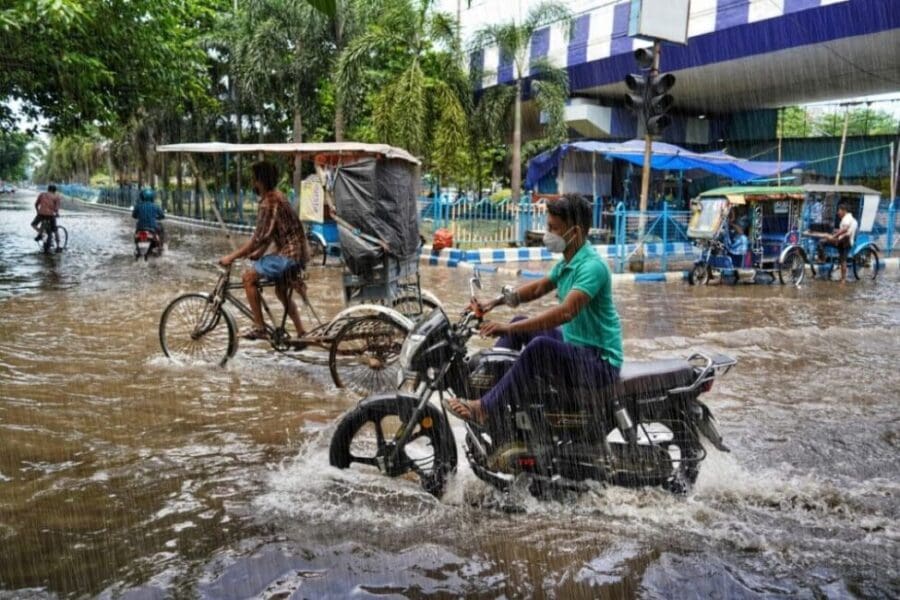By Tevah Platt, Institute for Social Research – University of Michigan
A recent University of Michigan study exposes a gap in sociology: a lack of focus on climate change.
Societies fuel and face the consequences of this crisis, but sociology as a discipline appears insufficiently engaged with the issue, says Sofia Hiltner, U-M doctoral candidate in sociology, whose research is published in The American Sociologist.
The study indicates a critical need for sociological insight into combating climate change. It finds little to no mention of climate change across leading sociology journal articles (0.9%), conference sessions (1.5%), faculty biographies (2.8%) and course listings in top-ranked departments in the U.S. (0.2%).
“This deficit threatens sociology’s relevance to human welfare. It also limits our understanding of the climate crisis as a social problem and our ability to imagine responses,” said Hiltner, a predoctoral trainee at the Population Studies Center at the Institute for Social Research.
Hiltner’s research extends previous work on sociology’s attention to climate change by examining a wider range of forums in which engagement might take place—articles from a range of leading, generalist sociology journals, conference sessions from the American Sociological Association Annual Meeting, and faculty biographies and course offerings in the U.S. News 20 top-ranked sociology departments.
“These last measures are critical because they provide insight into the education of students—the sociologists of the future,” Hiltner said.
Hiltner found limited attention to climate change across all of these forums. She found that less than 1% of articles (38 of 4,288) in sociology journals were substantially about climate change. Only two major sessions of the ASA Annual Meeting since 2002 mentioned climate change.

If a prospective student were to consider attending a top-20 sociology program in the U.S., they would find only three departments with more than one faculty member who mentioned climate change as a focus in their profile. And, out of more than 8,000 courses offered in these departments from fall 2019 to spring 2023, only 0.2% were concerned with climate change, while 1.4% mentioned environmental topics more generally.
Climate change is intertwined with national and global patterns of inequality that sociology, as a discipline, may be particularly suited to assess. Research shows that marginalized populations in the U.S. and worldwide experience more significant impacts from climate-related threats such as extreme heat, storms, air pollution and floods.
“Sociology is good at documenting disparities along multiple dimensions, and thus should be part of the conversation,” said Elizabeth Armstrong, U-M professor of sociology and an affiliate of the Population Studies Center. “Sociologists are also very good at analyzing why social change is hard to accomplish and can contribute to explaining why the policy changes necessary to make large-scale structural change are so hard to accomplish.”
Sociology is scarce in climate change research and major assessments, such as the U.S. Intergovernmental Panel on Climate Change reports. Social scientists have long lamented the dominance of the natural sciences—and within the relatively small space occupied by the social sciences, the dominance of economics—in climate research and policymaking.
“With this work, I hope to spark a conversation about the reasons for sociology’s relative silence on climate change, what is at stake, and ways forward,” Hiltner said.
Going forward, Hiltner suggests sociologists consider how climate change relates to their areas of interest and promote attention to climate change in the education of students and future sociologists. On the other hand, funders, journalists and policymakers may do more to foster and integrate the perspectives of social scientists on climate change, she says.
More information: Sofia Hiltner, ‘Limited Attention to Climate Change in U.S. Sociology’, The American Sociologist (2024); DOI: 10.1007/s12108-024-09624-4. University of Michigan Press Release. Featured image credit: Dibakar Roy | Unsplash




